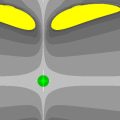Searching for information online can be a daunting task, especially when you don't know the right techniques to use. Truncation and wildcard search are two powerful tools that can help you find the information you need quickly and accurately. Truncation is a technique that expands the search to include several word endings, while wildcard search allows you to search for a term and its spelling variants. In this article, we'll explain what truncation and wildcard search are, how they work, and how to use them in different databases. Truncation is a technique that allows you to search for terms with different word endings.
To use truncation, enter the root of the word with the truncation symbol at the end. This symbol is usually an asterisk (*). For example, if you want to search for words related to education, you can enter “educat*” in the search box. This will return results for words such as “educate”, “educator”, “educational”, etc.
Truncation is used to broaden your search and get more results. Wildcard search is another way to broaden your search. It allows you to search for a term and its spelling variants. In Ovid databases, you can use wildcard symbols to find variations in the spelling and endings of words. Wildcard symbols can be used anywhere in the search term, except as the first character.
For example, if you want to search for words related to society, you can enter “societ*” in the search box. This will return results for words such as “society”, “societal”, “societies”, etc. It's important to note that different databases and search engines have different rules and symbols for truncation and wildcards. For example, in Primo Search, the truncation symbol is an asterisk (*), while in CINAHL it is a question mark (?). It's also important to remember that if you don't turn off mapping in Ovid databases, it will attempt to assign truncated terms to subject headers and issue an error message. In conclusion, truncation and wildcard search are two powerful tools that can help you find the information you need quickly and accurately.
They allow you to broaden your search by including different word endings or spelling variants of a term. It's important to remember that different databases and search engines have different rules and symbols for truncation and wildcards.











